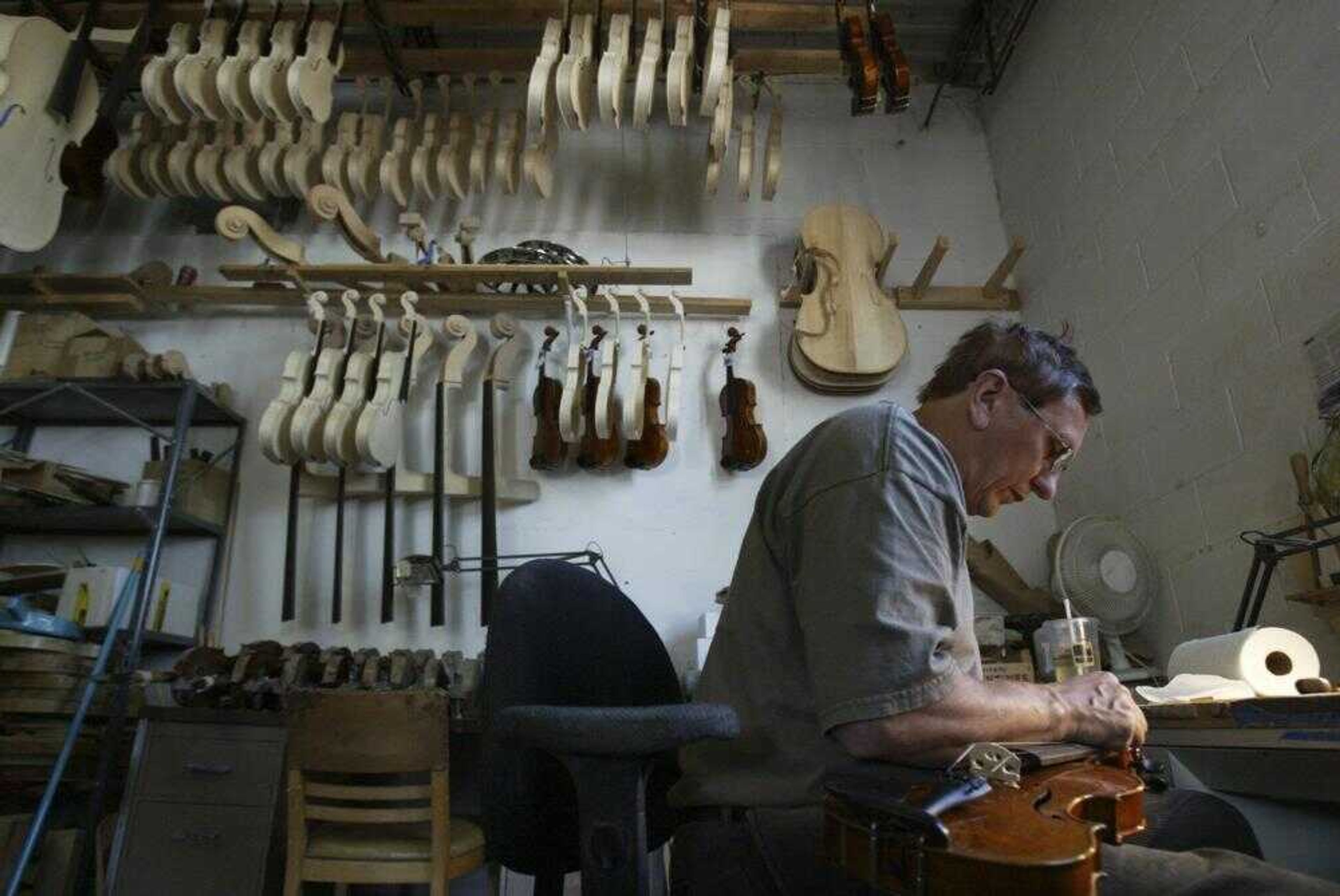Fine woods for musical instruments becoming tough to find
KANSAS CITY, Mo. -- Behind a violin's soaring notes or a guitar's sound are fine woods vibrating along with plucked or bowed strings. Orchestras, bands and parlor pickers for two centuries have enjoyed affordable instruments made from the finest tone woods cut from old-growth forests...
KANSAS CITY, Mo. -- Behind a violin's soaring notes or a guitar's sound are fine woods vibrating along with plucked or bowed strings.
Orchestras, bands and parlor pickers for two centuries have enjoyed affordable instruments made from the finest tone woods cut from old-growth forests.
No more.
The best tone woods are becoming unavailable or prohibitively expensive as the world's forests succumb to overharvesting, illegal logging and pollution.
"Most people don't realize the situation with wood," said Anton Krutz, a violin maker at K.C. Strings in Merriam, Kan. "We give tours of our shop, and I find even advanced players are not cognizant of this."
The instrument business will adapt with other woods or synthetics and survive, experts said. But as fine woods for clarinets, guitars and violin bows dwindle, price increases could make fine instruments unaffordable for many musicians.
Bluegrass guitarist Kenny Preston of North Kansas City would love to own an acoustic guitar with Brazilian rosewood sides and back, a wood beloved for its beauty and the rich bass and treble tones it produces.
"But I haven't been blessed with that much money," Preston said.
Retail prices for a new Martin D-28 acoustic guitar with Brazilian rosewood were $600 to $800 in 1970. They're now $10,000 to $12,000, said Jim Baggett, a longtime instrument dealer at Mass Street Music in Lawrence, Kan.
Wood scarcity is the biggest factor.
With South America's coastal forests being depleted, Brazilian rosewood has become endangered and shipment of the wood between countries is restricted by CITES, the Convention on International Trade in Endangered Species.
But the problem is not limited to one continent or exotic woods.
Commercial supplies of instrument-grade Sitka spruce from southeast Alaska -- used for the sounding boards of pianos, guitars, and bowed instruments -- may be exhausted within a decade, according to the Music Wood Campaign organized by major guitar manufacturers and Greenpeace to save Sitka.
"Because of tonal and structural properties, you can't make instruments out of just anything," said Linda Davis-Wallen, who travels the globe buying wood for the C.F. Martin Guitar Co., a 174-year-old company in Nazareth, Pa.
Musical instruments use only a tiny fraction of world wood products, Davis-Wallen said. Most exotic hardwoods are turned into furniture, caskets, cabinets and flooring.
Alternative guitar woods such as American cherry and black walnut are used but have thus far not been embraced by customers, Davis-Wallen said. The future will see guitars made from more pieces and types of wood, as well as laminates and synthetics such as carbon fiber, she said.
But the sound is not the same.
Connect with the Southeast Missourian Newsroom:
For corrections to this story or other insights for the editor, click here. To submit a letter to the editor, click here. To learn about the Southeast Missourian’s AI Policy, click here.








